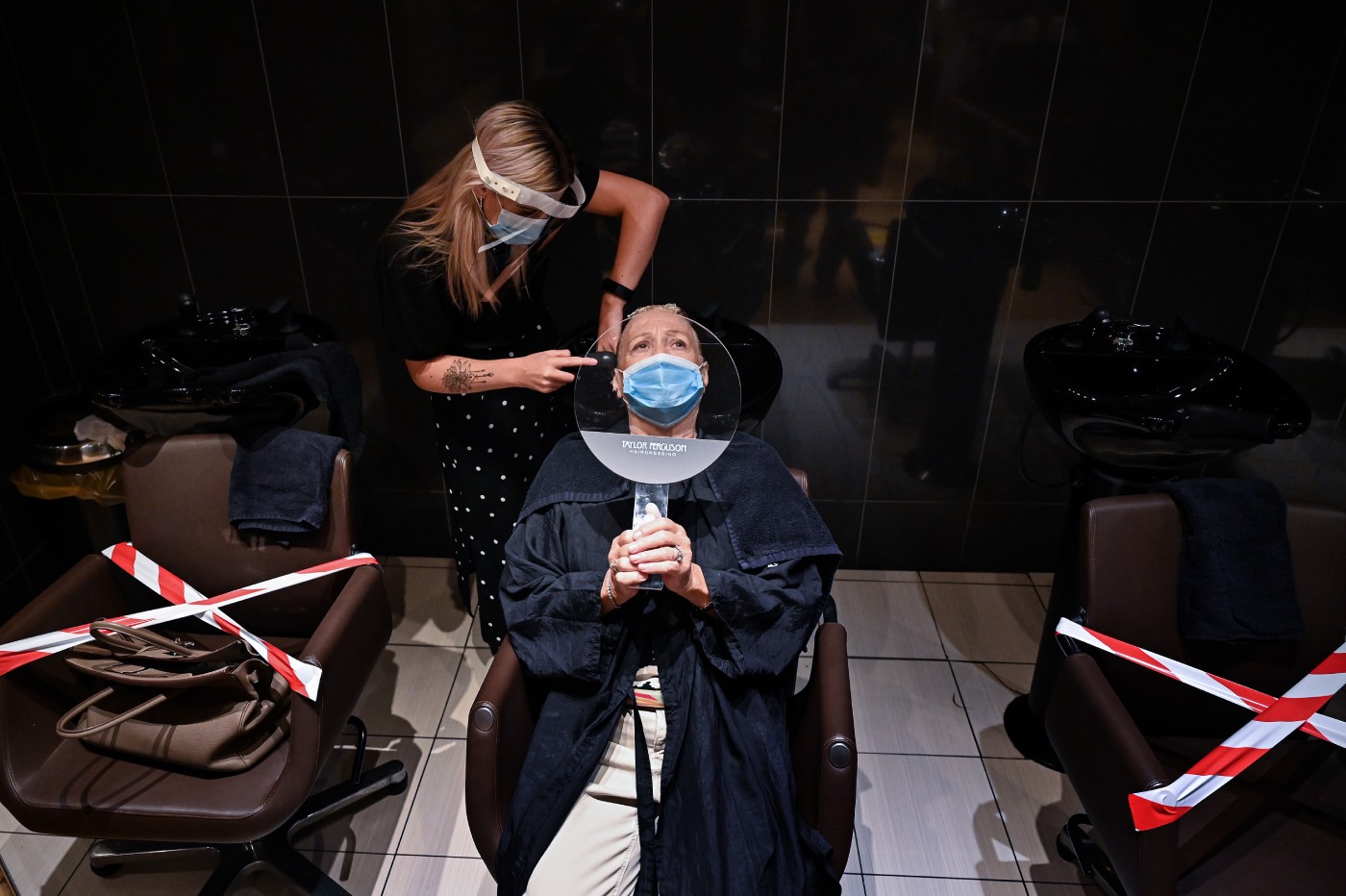Hairdressers warn of post-Covid hair dye allergies
Scientists at Imperial College are investigating how the virus could be reprogramming our immune system

A free daily email with the biggest news stories of the day – and the best features from TheWeek.com
You are now subscribed
Your newsletter sign-up was successful
Hairdressers have reported that customers are experiencing new allergic reactions to hair dye after contracting Covid, as scientists investigate how the virus could be reprogramming our immune systems.
The BBC reported that the reactions, including rashes and burns, have been recorded by salons in parts of the UK.
One customer said she suffered a reaction to a patch test after having Covid, despite using the same hair dye for ten years. She explained that she developed a “hot burning sensation” behind her ears that worsened “to the point where it had taken layers of skin” off.
The Week
Escape your echo chamber. Get the facts behind the news, plus analysis from multiple perspectives.

Sign up for The Week's Free Newsletters
From our morning news briefing to a weekly Good News Newsletter, get the best of The Week delivered directly to your inbox.
From our morning news briefing to a weekly Good News Newsletter, get the best of The Week delivered directly to your inbox.
The National Hair and Beauty Federation (NHBF), the trade body that represents hairdressers and beauticians, has advised hairdressers to always carry out patch tests at least 48 hours before colouring their clients’ hair to avoid facing legal action.
This is not the first time a connection between this type of allergy and Covid-19 has been suggested. Last winter, rumours swept around the hairdressing community that clients had developed allergies to hair dye after having coronavirus.
The NHBF had speculated that the heightened skin sensitivity may have have been due to the fact that people hadn’t had their hair dyed for a long time, naturally developing a sensitivity during the lockdown months.
Scientists at Imperial College London are researching how the virus could be reprogramming our immune system, in a similar way to other illnesses.
A free daily email with the biggest news stories of the day – and the best features from TheWeek.com
Danny Altmann, professor of immunology at Imperial, told the BBC that “among the very bizarre and horrible things the virus does, one of the things it seems to be able to do is reprogramme, tune up and tune down, different parts of the immune response”.
-
 What are the best investments for beginners?
What are the best investments for beginners?The Explainer Stocks and ETFs and bonds, oh my
-
 What to know before filing your own taxes for the first time
What to know before filing your own taxes for the first timethe explainer Tackle this financial milestone with confidence
-
 The biggest box office flops of the 21st century
The biggest box office flops of the 21st centuryin depth Unnecessary remakes and turgid, expensive CGI-fests highlight this list of these most notorious box-office losers
-
 A Nipah virus outbreak in India has brought back Covid-era surveillance
A Nipah virus outbreak in India has brought back Covid-era surveillanceUnder the radar The disease can spread through animals and humans
-
 Covid-19 mRNA vaccines could help fight cancer
Covid-19 mRNA vaccines could help fight cancerUnder the radar They boost the immune system
-
 The new Stratus Covid strain – and why it’s on the rise
The new Stratus Covid strain – and why it’s on the riseThe Explainer ‘No evidence’ new variant is more dangerous or that vaccines won’t work against it, say UK health experts
-
 RFK Jr. vaccine panel advises restricting MMRV shot
RFK Jr. vaccine panel advises restricting MMRV shotSpeed Read The committee voted to restrict access to a childhood vaccine against chickenpox
-
 RFK Jr. scraps Covid shots for pregnant women, kids
RFK Jr. scraps Covid shots for pregnant women, kidsSpeed Read The Health Secretary announced a policy change without informing CDC officials
-
 New FDA chiefs limit Covid-19 shots to elderly, sick
New FDA chiefs limit Covid-19 shots to elderly, sickspeed read The FDA set stricter approval standards for booster shots
-
 RFK Jr.: A new plan for sabotaging vaccines
RFK Jr.: A new plan for sabotaging vaccinesFeature The Health Secretary announced changes to vaccine testing and asks Americans to 'do your own research'
-
 Five years on: How Covid changed everything
Five years on: How Covid changed everythingFeature We seem to have collectively forgotten Covid’s horrors, but they have completely reshaped politics